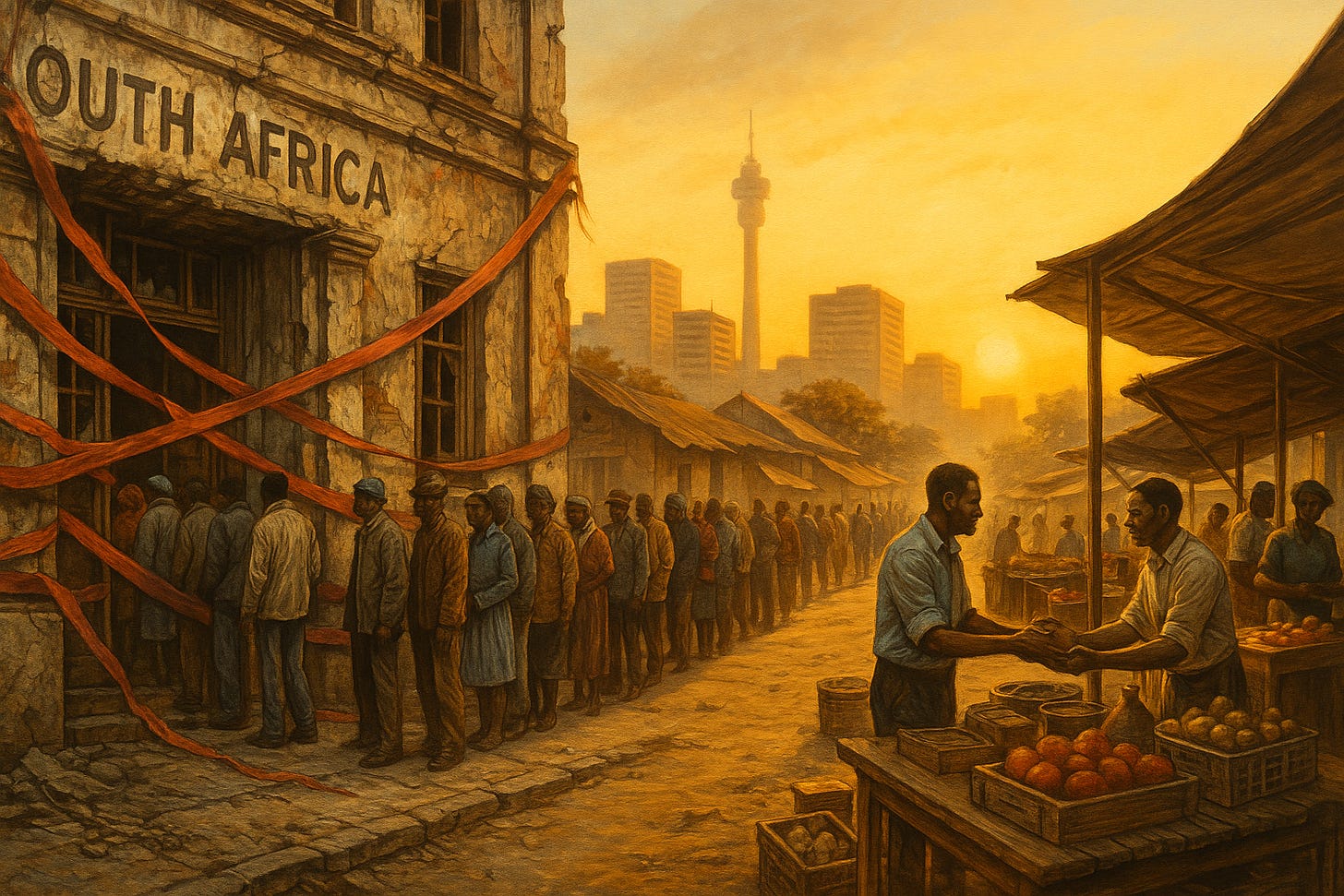When Good Intentions Collide with Bad Economics
We cannot regulate and subsidise our way to prosperity. Poverty will only end when South Africans are empowered to create wealth, not wait for it to be delivered from the steps of Parliament.
Written By: Thabo Khumalo
When the African National Congress (ANC) came to power in 1994, it promised to eradicate poverty and inequality. The Reconstruction and Development Plan (RDP) and later the Growth, Employment and Redistribution (GEAR) strategy were launched to deliver that dream. Thirty years later, poverty persists, unemployment is staggering, and inequality remains entrenched. It is not for lack of compassion or ambition, but because compassion without economic understanding is a recipe for failure.
The Trouble with Central Planning
The RDP was born out of noble intentions: build houses, provide free health care, extend electricity, and deliver justice through redistribution. For a while, it worked. Millions gained access to services that had been denied to them under apartheid. Yet the plan collapsed under its own weight.
Why? Because it tried to do everything at once. The RDP wanted both fiscal discipline and higher government spending, both liberalised trade and greater state control. The contradictions were baked into the policy. In trying to satisfy every ideological faction, the government created an incoherent economic blueprint. The inevitable result was ballooning bureaucracy, runaway expectations, and little sustainable growth.
A government can redistribute only what an economy first produces. Without production, without investment, entrepreneurship, and the profit motive, there is nothing to share. The RDP mistook spending for development and bureaucracy for progress.
The Market That Never Got a Chance
GEAR, introduced in 1996, tried to correct course. It recognised what every functioning economy knows: growth, employment, and redistribution must be driven by the private sector. Its focus on fiscal discipline, trade liberalisation, and reducing the state’s unsustainable payroll was sound economics.
But GEAR’s biggest obstacle was political, not technical. The policy was attacked by unions and party ideologues who saw “neoliberalism” as a dirty word. The Tripartite Alliance sabotaged its implementation, refusing to let the market breathe. Instead of allowing the private sector to lead job creation, the state doubled down on intervention.
Critics blamed GEAR for failures in education, water, and welfare, but these were failures of execution, not principle. Privatisation, when done correctly, does not abandon the poor. It invites competition and innovation while allowing government to focus on targeted safety nets for those who truly need them. South Africa’s experience shows what happens when sound market reforms are half-heartedly adopted and quickly abandoned: stagnation.
The Myth of the Welfare Fix
Social grants have since become the cornerstone of the ANC’s poverty alleviation strategy. They have prevented destitution for millions, and that is no small feat. But welfare cannot substitute for work. A society where government payouts replace opportunity is one where dignity and independence erode.
Instead of building more welfare programs, South Africa should focus on the only proven anti-poverty policy in history: economic growth through free enterprise. When people are free to trade, to start businesses, to hire and be hired without political interference, prosperity follows.
Freedom Over Control
The failures of the RDP and GEAR are not simply the failures of the ANC. They are the failures of an economic philosophy that mistrusts markets and overestimates the wisdom of central planners. South Africa’s salvation lies not in more state plans or “development frameworks,” but in liberating the economy from them.
We cannot regulate and subsidise our way to prosperity. Poverty will only end when South Africans are empowered to create wealth, not wait for it to be delivered from the steps of Parliament.
Thabo Khumalo is a concerned South African citizen and writer, focusing on analysing politics from a rational perspective.




You are a voice of reason. Thank you